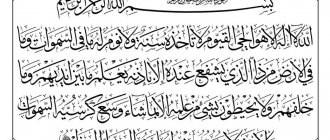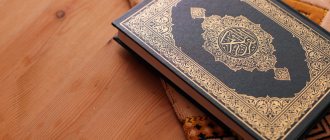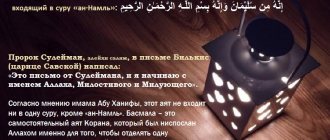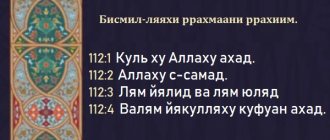Jewish vow of love that has lasted for centuries
The Shema Yisrael prayer can still be called one of the most significant postulates in the life and history of the Jewish people. The name of the prayer comes from its first two words and means “listen”:
“Hear, O Israel: The Lord our God is one Lord; And you shall love the Lord your God with all your heart and with all your soul and with all your strength” (Deut. 6:4-5)
This pledge of fidelity, similar to a marriage vow, is a hymn of praise to the Lord. It is found in the Book of Deuteronomy, in Moses' address to the people of Israel.
Claiming an inheritance
A little more and the people will enter the Promised Land. This is important to know because with this speech Moses lays the foundation and establishes the protocol for the Israelites' relationship with each other and with God.
Moses will not enter the Promised Land with the people, so he does everything possible on his part to prepare the people for a new life in prosperity. In verse 3 Moses says, “That it may go well with you, and that you may multiply greatly.” In the same way, the words of the Shema Yisrael prayer prepare us for a life of prosperity.
These words of God's promise did not apply to the Israelites at that particular moment in history and nothing more. They apply to all of God's children throughout time.
photo — Yaniv Ben-Arie, Flickr
A promise that lasts
Moses begins by declaring that there is only one God—one Lord. Throughout their history, the people of Israel lived surrounded by other nations who worshiped many different gods. From their life in Canaan, then for many years in Egypt, and ending with 40 years of wandering in the desert, they were surrounded everywhere by peoples who professed polytheism.
The people were clearly told that from this moment on, loyalty, obedience and love to their one God was their only path. Unfaithfulness to the Lord could be a huge threat to the future of the people of Israel, so Moses lays this guiding truth at the foundation of his relationship with Him.
Many translations of Deuteronomy 6:4 translate the word “shema” as “listen.” However, the meaning of the word “listen” in English does not fully reflect the meaning of the word in Hebrew, nor does it do much to help us grasp its meaning.
In Hebrew, the word “shema” means not only to hear something, but also to take some action in accordance with what was heard: to take into account, to obey, and most importantly, to do as it was told.
In Hebrew, “listening” and “obeying” are essentially the same thing. Moses doesn't just tell the people: “Okay, people, pay attention!” (although, undoubtedly, he also says this). Moses says, “Live what you are told, put these words into practice, let them become a part of you.”
Jacob 1:22 captures this idea perfectly, urging us to:
“Be doers of the Word, and not merely hearers who deceive themselves. Only the one who has gazed intently at the perfect law that brings freedom and has not deviated from it, that is, not a forgetful listener, but a doer of action, will be truly happy in his endeavors” (James 1:22,25, RBO )
"Shema israel" Author — michel D'anastasio, Flickr
Latin transcription
This method of learning helps to avoid mistakes when pronouncing words. It is used at the stage of familiarization with an unfamiliar language. First, you can master the version written in Russian letters. After this, you can read the Latin transcription.
| In Russian | Latin transcription |
| Avinu, schebashamayimYitkadesh shimkha Tavo malkutekha Yease rtzonkha ba-arets ka-asher na-asa vashamayim Ten-lanu hayom léchem hukeynu. U-selah lanu et ashmateynu, ka-asher solehim anahnu la-asher ashemu lanu. Ve-al-tevieinu lidei massah, ki-im hatzileinu min-hara. Ki lekha Ha-mamelakha Ve-hag'vura Veha-tif'eret le-olmei olamim. Amain. | Avínu shebáshamáyim, Yítkadésh shimhá. Tavó Malkhutéha, Yeasé Retsóneha, ba-árets ka-ashér na-asá vashámayim, Ten-lánu haiyóm léhem hukéynu. U-seláh lánu et ashmatéynu, ka-ashér solehím anáhnu la-ashér áshemu lánu. Ve-ál-teviéynu lidéy massáh, ki-ím hatzileynu min-hará. Ki lehá ha-mámelahá ve-hágevurá vehá-tif-éret, le-óleméy ólamím Améin. |
Taking a vow
Moses wants the people to understand that their commitment to the Lord must be supported by action and must be reflected in the lifestyle they choose for themselves. When the bride and groom exchange wedding vows, their words imply action, just like the words of the Shema Yisrael prayer.
The Shema Yisrael prayer, in a sense, preserved the Israeli people.
The words of dedication have stood the test of time, and today the Shema Yisrael prayer is still taken quite literally. Many Jews pray this prayer every morning and evening. It is especially noteworthy that the Shema Yisrael prayer is said during every Shabbat service around the world.
Parents teach their children the Shema Yisrael prayer in fulfillment of the commandment: “Teach them to your children and talk about them” (Deut. 6:7).
You may have seen Jewish men with small black boxes tied with leather straps to their hands and heads. These boxes are called tefillin. This tradition also originates from the Shema Yisrael prayer, in particular from this verse:
“May my words find a place in your hearts and penetrate to the depths of your soul! Tie them on your hands as a sign of remembrance, and wear them on your foreheads as a bandage” (Deut. 11:18, BTI).
How to say a prayer before bed?
As you know, getting ready for bed is one of the fundamental principles of serving the Creator. For Jews, the day begins in the evening1. When a person reads a prayer before going to bed in a way that is not required, then service to the Creator is in constant sleep. “There is such a disease (God forbid) that a person “puts” himself into a sleeping state: he walks, thinks, talks and does everything in a sleeping state. In the same way during the service of the Creator: they pray, put on tefillin, but they do everything (as if) in a dream - it’s time to wake up!”2.
One who correctly fulfills the commandment 3 of saying a prayer before going to bed, reading it with concentration, changes the very process of sleep. Moreover, his next day looks completely different, as he rises to a higher level in the service of G-d4.
Before starting to say this prayer, it is advisable to prepare in advance, keeping in mind that the day is truly over. As soon as a person is ready to go to bed to sleep5 and say a prayer accordingly, certain restrictions come into force that do not allow him to “continue” the day (for example: eating, drinking or even talking6). After the fact, if some conversation was not completed or a feeling of thirst suddenly appeared, then it is permissible, if necessary, to say and quench the thirst7, but after that repeat the Shema prayer again8. However, it is necessary to remember the following: after reciting the blessing “closing the eyes”, drinking or talking is prohibited.
Prayer before bed is not said in pajamas. Dress should be appropriate, as when a person stands before a king9.
Initially, the prayer before bed is read not while lying down, but while sitting or standing10. It is customary for Chabad Hasidim to say this prayer while standing, with the exception of the last blessing “closing the eyes”11 (see below).
You should try to read this prayer not near the bed12. After the fact, it is allowed to pray while lying in bed not on your back or stomach, but completely lying on your side13.
Before the prayer begins, a self-report (“heshbon nefesh”) is carried out, i.e. you must try to scroll through your thoughts the whole day from its beginning to the present moment, and determine everything that was done14 not according to the laws of the Torah. And in full hope of the mercy of the Almighty, ask for an apology for this (and promise Him that every effort will be made to eliminate these errors (if they were found), and, accordingly, having identified them, try not to repeat15). This work is absolutely individual, depending on the level of service to G-d16. It is necessary to take into account that the report is made in joy, with full faith that everything said will be heard and accepted by G-d, and there is no reason for sadness17.
On certain days when “heshbon nefesh” is not done (for example, on Saturday 18), the work of the hassid consists of constant and uninterrupted communication with the Rebbe, at all levels of his being, in full confidence in the feedback of the Rebbe of the King of Moshiach SHLITA with the hasid and not for a moment continuous guidance and participation in every detail of life. And it is quite clear that this thought (even without much thought) will definitely influence the Hasid to the very depths of his soul, thereby strengthening in him a firm decision to fulfill the desire of the Rebbe King Moshiach19.
It is customary to read the prayer before going to bed according to the text established by Saint ARI20. Certain parts of the prayer also apply to women. If a woman has not prayed the evening prayer, then she must21 recite the entire Shema prayer up to the words “Blessed are You, O Lord, who has freed Israel”22. Next, the women pronounce the last blessing “closer of the eyes”23. But a passage of prayer is missed, which mentions the 4th punishment of death by heavenly court (this passage is part of the prayer “Tahanun”)24.
At the end of the prayer, all phrases are said three times, as indicated in the Tehilat Hashem siddur. There is also an opinion that it is necessary to repeat the phrase “I entrust you with my soul” three times25.
Then read the paragraph “Lord of all worlds!” 26 to the words “with hope for the best” (since the next part refers to the request to stand on “tikun hatzot”)27. They continue with the words “Thou art with mercy” until the end.
After all the prayers before going to bed are completed, the blessing “closing the eyes” is recited28. This blessing is said right next to the bed (thereby preventing a minimum pause before sleep29.
In the case of marital relations, immediately after the prayer30 the 23rd Psalm is said, etc., as indicated in the siddur. After fulfilling this commandment, it is necessary to wash the hands, read the first paragraph of the Shema prayer again (before the words “at your gates”), and end with the blessing “closer of the eyes”31.
If a person is sick and is not able to say the entire prayer, then it is permissible to say only the first paragraph of the Shema prayer (from the words “Hear Israel” to “At your gates”), and end with the blessing “closer of the eyes”32.
In case of severe fatigue, even to the point of a strong desire to sleep earlier than the usual time of reciting the Shema prayer before bed, it is permissible to recite this prayer in advance. But nevertheless, before going to bed it is necessary to
Above all
Many devout Jews hope that these biblical verses will be their last words before death - so much do they honor the Shema Yisrael prayer. Before their deaths, Jewish martyrs, including victims of the Holocaust, professed their faith and commitment to the one true God one last time by praying the words of this prayer.
To confirm the words of Moses, Jesus says, “You shall love the Lord your God with all your heart and with all your soul and with all your mind” (Matthew 22:37, NRT).
Again, like wedding vows, these words call us to love the Lord with all our hearts and every day of our lives. If we allow it to happen, the Shema Yisrael prayer can serve as an eternal reminder to us of all the amazing works of the Lord recorded in Scripture, throughout human history and in our own lives.
These words can protect us too.
“Hear, O Israel: The Lord our God is one Lord; And you shall love the Lord your God with all your heart and with all your soul and with all your strength” (Deut. 6:4-5).
Author - Avital Snow / firm.org.il Translation - Anastasia Skovorodnikova for
Donate Last: 02/28. Thank you!
Subscribe: Telegram • Facebook • • • Twitter • Instagram • Youtube
Links[edit]
- Moberly, R. W. L. (1990). ""Yahweh is One": a translation of the Shema". In Emerton, J. A. (ed.). Studies in the Pentateuch
.
Vetus Testamentum, Additions. 41
. Leiden: Brill Publishers. pp. 209–215. DOI: 10.1163/9789004275645_012. ISBN 978-90-04-27564-5. - "Before bed Shema". MyJewishLearning.com.
- “Why do they say Shema before going to bed? “Didn’t we just say that in Maariv?” Chabad.org.
- "OzTorah" Blog Archive "Baruch Shem: 2nd line of the Shema - Ask the Rabbi". www.oztorah.com.
- ^ a b
The Complete Hebrew Bible (Tanakh), based on the JPS 1917 Hebrew-English translation, Deuteronomy 6, accessed November 29, 2015. - "Judaism 101: Shema". www.jewfaq.org
. - Mishnah Berurah, OC 106:1 § 7
- Deuteronomy 33:4
- Babylonian Talmud, Sukkah 42a
- Mishnah Berachot 2:5
- Babylonian Talmud, Berakhot 13b
- ^ a b
Mishnah, Berachot 1:4 - From the Heart: The Shema in Jewish Worship, Practice and Life by Meir Levin, ISBN 1-56871-215-4, pp. 207-212
- Psalm 119:164
- "[Otzar770 - View book page]". otzar770.com
. - Deuteronomy 20:3; Babylonian Talmud Sotah 42a
- Babylonian Talmud, Berakhot 61b
- Lubotzky, Asael (2016). From the Desert and Lebanon
. Koren Publishing House Jerusalem. pp. 56–57. ISBN 978-1-59264-417-9. - Bruno, Christopher (2014). "God is One": The Function of "Eis Ho Theos" as a Reason for the Inclusion of Gentiles in the Epistles of Paul
. London: Bloomsbury Publishing. pp. 24–113, 199–206. - Richard Bauckham. "Shema and again 1 Corinthians 8:6." In One God, One People, One Future: Essays in Honor N. T. Wright
, edited by John Anthony Dunne and Eric Lewellen, 86–111. Minneapolis, MN: Fortress Press, 2022. - Mark D. Nanos. "Paul and the Jewish Tradition: The Ideology of the Shema." In Honor of Paul: A Celebration in Honor of Jerome Murphy-O'Connor, OP, and Joseph A. Fitzmyer, SJ
, edited by Peter Spitaler, 62–80. Washington, DC: Catholic Biblical Association of America, 2011. - Bauckham, "Shema and 1 Corinthians 8:6 times" 90.
- For a complete list, see Bauckham "Shema and 1 Corinthians 8:6 Again," 103-108.
- "Melachim II - II Kings - Chapter 19". www.chabad.org
. Retrieved May 1, 2022. - "Zechariah - Chapter 14". www.chabad.org
. Retrieved May 1, 2022. - "Malachi - Chapter 2". www.chabad.org
. Retrieved May 1, 2022. - Beyond the Bible: Ancient Jewish Writings Connected to Scripture
. Feldman, Louis H., Kugel, James L., Shiffman, Lawrence H. Philadelphia. item 2738. ISBN 978-0-8276-0933-4. OCLC 839395969 .CS1 maint: others (link) - "Bible Passage: 2 Maccabees 7:37-39 - Revised Standard Version". Bible portal
. Retrieved May 1, 2022. - "PACE - Jewish Antiquities". pace.webhosting.rug.nl
. Retrieved May 1, 2022. - "PACE - Against Apion". pace.webhosting.rug.nl
. Retrieved May 1, 2022. - "Justin Bieber: Young Evangelist?" . HuffPost
. February 9, 2011 - "Valhalleluja - Nanowar Of Steel". Letras.mus.br
(in Portuguese). Retrieved January 20, 2022. - English translation and commentary on the second section of the Tanya: Shaar Hayichud Vehaemunah-Gate of Unity and Faith
from Chabad.org. Retrieved October 2009 - Keil and Delitzsch Old Testament Bible Commentary on Deuteronomy 6, accessed November 6, 2015
- See Brian J. Wright, "Deuteronomy 6:4 and the Trinity: How Can Jews and Christians Receive the 'Echad' Shema?" https://www.academia.edu/12230043/Deuteronomy_6_4_and_the_Trinity_How_Can_Jews_and_Christians_Both_Embrace_the_Echad_of_the_Shema
- "Divine Office - Liturgy of the Hours of the Roman Catholic Church (Breviary)" Welcome to the Divine Office Community! ". divineoffice.org
. Retrieved November 21, 2022. - "Order for the Lord's Supper or Holy Communion". December 7, 2013.
- BCP Liturgical Prayer, "Shama": The Prayer of Christendom and the Kaldians". Assembly of Christ. Orthodox Church of the Caldeans (Celtic).









